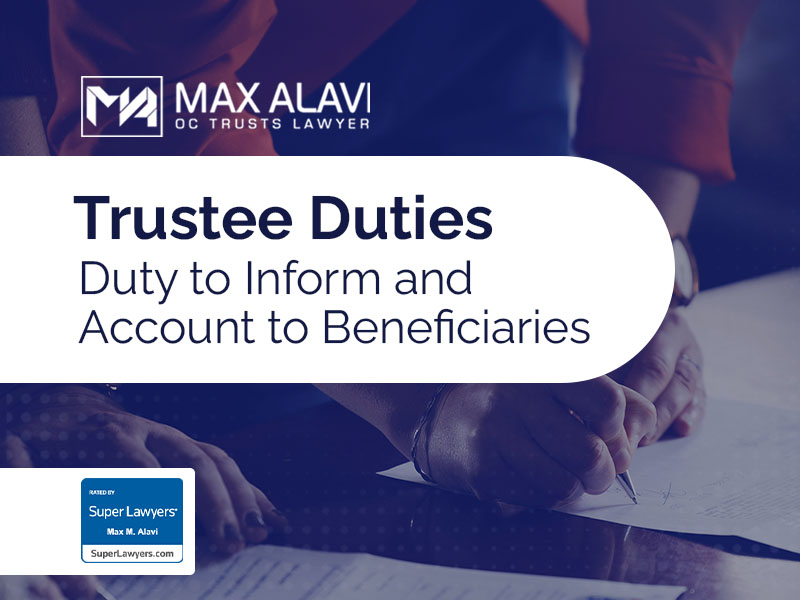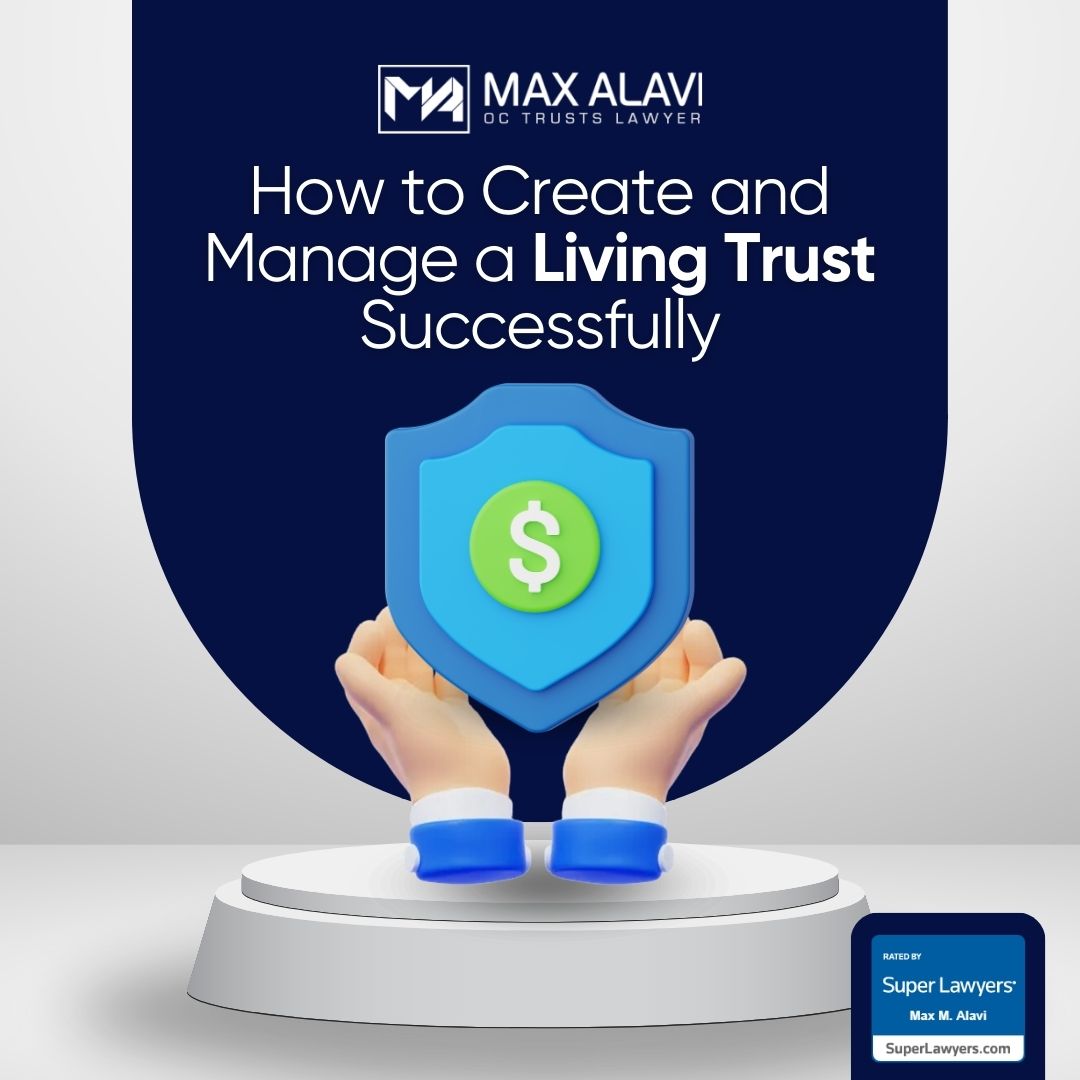Estate planning allows you to prepare for all contingencies, including possibly a loved one becoming disabled. One of the challenges associated with a disability is that any financial gift may disqualify the beneficiary from receiving public assistance. One way to sidestep this problem is by creating a standby supplemental needs trust, which can come into effect only when needed to supplement government benefits. Find out more from the living trust law firm of Max Alavi APC, OC Trusts Lawyer.
How a Standby Supplemental Needs Trust Can Protect Your Loved Ones
It’s always wise to be prepared, planning even for those “just in case” scenarios you hope will never materialize. When you leave for a beach trip, you probably take rain gear with you, even if the forecast shows nothing but sun and clear, blue skies. And in much the same way, you should use your estate plan, including your living trust, to prepare for all possible contingencies, even those that seem a little unlikely. Specifically, it’s wise to prepare for the possibility that one of your loved ones might become disabled.
Disability: More Common Than You Think
Indeed, the risk of a loved one becoming disabled may be higher than you’d think. Statistics tell us that about 61 million U.S. adults live with a disability, roughly one out of every four. About a quarter of all twenty-year-olds will become disabled before retirement age. And, of course, it’s impossible to predict if, when, and how disability might strike; it could result from illness, accident, or injury. Both physical and mental disabilities can affect people of all ages.
The bottom line: Even if you don’t currently have any loved ones who are disabled, it’s still wise to plan for that eventuality. A good living trust lawyer can provide you with some options.
Thinking Through Your Disability Planning Options
If one of your loved ones becomes disabled, they may need financial assistance from government programs like Social Security Disability Insurance or simply Medicaid. These programs can be lifesavers, but they have their downsides. For example, any monetary gift or inheritance from you may disqualify your loved one from receiving their public benefits. In other words, a well-intended gift can become a curse.
One way to avoid this fate is to set aside a supplemental needs trust. This kind of trust stipulates that the assets included are only available to supplement any public benefits the beneficiary is already receiving.
In other words, the trust’s money and property are not included as available resources when determining your loved one’s eligibility to receive needs-based benefits from the government. A “standby” supplemental needs trust essentially goes into effect only if a beneficiary is disabled at the time of your death or, depending on the eligibility rules in your state, becomes disabled at a later date but before the trust has been fully distributed.
Suppose your loved one with a disability receives government assistance at the time of your death. In that case, the inheritance the beneficiary receives from you in a supplemental needs trust will not adversely affect the assistance they receive from government programs.
Speak with a Living Trust Attorney Today
To learn more about your options for supporting disabled family members, now or as a future contingency, we welcome you to speak with a representative from our living trust law firm. Max Alavi APC, OC Trusts Lawyer, has a proven track record of helping clients prepare for all contingencies. Schedule a consultation with our living trust law firm at your convenience.






